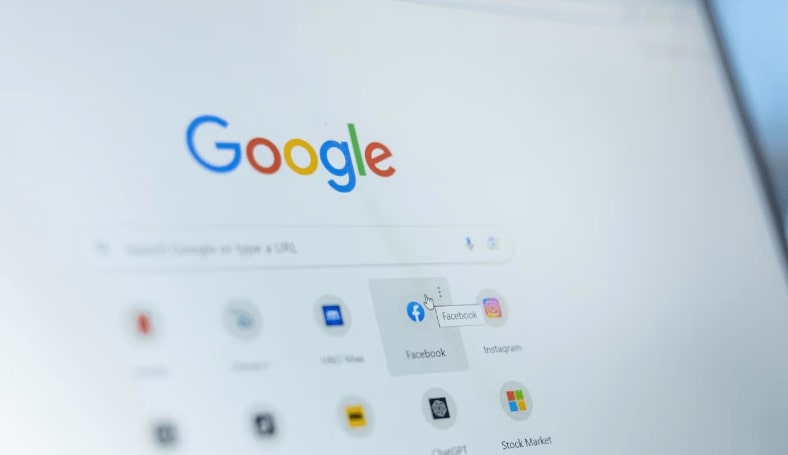If you’ve spent any time researching online advertising, you’ve likely come across two very similar-sounding terms: Google AdWords and Google AdSense. For beginners, these names can be a source of confusion, making it difficult to understand which one is right for you.
To put it simply, they are two sides of the same coin, the coin being Google’s massive advertising network. While both are critical to the digital ecosystem, they serve completely different purposes and are designed for entirely different users. This guide will clear up the confusion once and for all. We’ll break down what each platform does and who it’s for and provide a clear comparison to help you understand which tool is the right fit for your goals.
Why This Difference Matters?
Before we dive into the details, it’s important to understand why this distinction is crucial. Using the wrong platform can not only be ineffective but can also cost you time and money. It’s the difference between being a store owner and being the landlord who rents out space to the store. Both are involved in the business, but their roles, goals, and revenue streams are opposite.
The Common Confusion Between AdWords and AdSense
The confusion stems from the fact that both services are run by Google and are part of the same ad network. An ad created on AdWords can appear on a website that uses AdSense. This interconnectedness makes it seem like they might be the same service. However, the key difference lies in the role you play: are you the one paying to show an ad, or are you the one earning money by hosting an ad?
Who This Article Is For: Publishers vs. Advertisers
- You are an Advertiser: This means you are a business owner, a marketing manager, or an entrepreneur. You have a product or service to sell and want to use Google’s network to drive traffic to your website, generate leads, or make sales. Your goal is to pay for advertising to get a return on your investment. In this case, Google Ads (the new name for AdWords) is for you.
- You are a Publisher: This means you own a website, a blog, or an app with an audience. Your goal is to monetize your content by selling ad space on your digital property. You want to earn a passive income stream from the traffic you already have. In this case, Google AdSense is for you.
What Is Google AdWords (Now Google Ads)?
Google Ads is a platform for advertisers. It is a powerful pay-per-click (PPC) system that allows businesses to show their ads to a massive audience across Google’s network. The “AdWords” name was retired in 2018, but many people still use it, so it’s important to know they refer to the same service.
How Google Ads Works for Businesses
At its core, Google Ads works on an auction system. As an advertiser, you create campaigns, write ad copy, and then bid on keywords that are relevant to your business. When a user searches for one of your keywords, your ad can appear. The more you’re willing to pay per click (or the higher quality score you have), the more likely your ad is to be shown. You only pay when a user clicks on your ad and visits your website.
This is a proactive “pull” marketing strategy. You are actively pulling potential customers in by showing them your products or services at the exact moment they are looking for a solution.
Types of Google Ads Campaigns (Search, Display, Video, etc.)
Google Ads offers a variety of campaign types to suit different business goals:
- Search Ads: These are the text-based ads that appear at the top of Google search results. They are perfect for capturing high-intent users.
- Display Ads: These are image-based ads that appear on millions of websites and apps in Google’s Display Network. They are ideal for brand awareness and retargeting.
- Video Ads: These are ads that appear before, during, or after videos on YouTube and across other video publisher sites.
- Shopping Ads: For e-commerce businesses, these ads show a product image, title, price, and store name directly in the search results.
These are just a few examples of the many advertising options available. The wide range of available campaign types, along with sophisticated targeting, is what makes a professional approach to Google Ads Services so valuable for any business looking to grow.
Google AdSense is the platform for publishers. It is a free, simple way for website owners to monetize their content by allowing Google to place relevant ads on their site.
How Website Owners Make Money with AdSense
As a website owner, you sign up for an AdSense account and place a small piece of code on your site. AdSense then automatically serves ads that are relevant to your content and your audience. For example, if you have a blog about fitness, AdSense might display ads for a new gym, a sports supplement, or workout apparel.
You get paid when a user clicks on one of these ads (CPC model) or, in some cases, based on the number of ad impressions (CPM model). AdSense handles all the heavy lifting—from finding advertisers to billing them and paying you your share of the revenue.
Ad Formats and Placement Control
AdSense gives publishers a decent amount of control over their ad placements. You can choose from various ad formats, including:
- Display Ads: Standard rectangular or square banner ads.
- In-feed Ads: Ads that fit naturally within a list of articles or products.
- In-article Ads: Ads that are placed in the middle of your content.
- Matched Content Ads: A format that recommends your content and places ads alongside it.
The platform automatically optimizes which ads are shown to maximize your revenue, but you still have a say in where the ads appear on your page.
Payment Methods and Revenue Share
AdSense operates on a revenue-sharing model. Google keeps a percentage of the revenue it collects from the advertiser, and the rest goes to the publisher. For content ads, the split is typically 68% for the publisher and 32% for Google. Payments are sent out monthly once your earnings reach a certain threshold, and you can receive money via various methods, including direct deposit.
Key Differences Between Google Ads and AdSense
Let’s summarize the key distinctions between the two platforms to make the difference crystal clear.
User Intent: Advertiser vs. Publisher
- Google Ads: You have a business goal and are actively seeking to reach a new audience. You are the one initiating the transaction.
- Google AdSense: You have content with an audience and are offering a space for advertisers to reach your audience. You are passively earning revenue.
Revenue Flow: Who Pays & Who Earns
- Google Ads: You pay Google.
- Google AdSense: You are paid by Google.
Platform Access & Management Interface
- Google Ads: The interface is focused on campaign management. You will be building ad groups, writing ad copy, setting budgets, and analyzing campaign performance metrics like clicks, conversions, and cost.
- Google AdSense: The interface is focused on ad management for your site. You will be generating ad code, managing ad placements, and viewing your earnings reports.
Here’s a simple table to illustrate the core differences:
Feature Google Ads Google AdSense
User Role Advertiser Publisher
Primary Goal Attract customers, generate sales Monetize website traffic, earn revenue
Revenue Flow You pay Google for ad clicks You are paid by Google for ad clicks
Platform Function Create and manage ad campaigns Place ad code and manage ad placements
Marketing Strategy Active “pull” marketing Passive “push” advertising
Best For Businesses, e-commerce sites Bloggers, content creators, forums
Which One Is Right for You?
The answer to this question is straightforward. It all depends on your role in the digital ecosystem.
You’re a Business? Go with Google Ads
If you have a business, a product, or a service, your primary focus should be on Google Ads. It is the most direct and effective way to connect with people who are actively searching for what you offer. Whether you’re a local bakery trying to get more foot traffic or an e-commerce store selling products globally, Google Ads is the tool you need to drive growth. A well-managed campaign can deliver a predictable stream of new customers.
You’re a Content Creator? Use AdSense
If you’re a blogger, a journalist, a forum owner, or a content creator with an active audience, Google AdSense is the right choice for you. It allows you to monetize your hard work without having to build your own sales funnel. By placing simple ad code on your site, you can earn a passive income stream from the traffic you’ve already cultivated. To maximize your earning potential, it’s also important to have a strong search presence, which is where specialized Google Ads Services can help promote your content and get more eyes on your site.
Can You Use Both Google Ads and AdSense?
Yes, absolutely. Many content creators and businesses use both tools simultaneously as part of a sophisticated, multi-pronged digital strategy.
When It Makes Sense to Use Both
The most common scenario is for a content creator with a monetized blog. They use AdSense to earn revenue from ads on their site, but they also use Google Ads to promote their best-performing blog posts. This strategy drives more traffic to their site, which in turn increases their AdSense earnings. It’s a powerful combination that creates a positive feedback loop.
SEO and Ads Balance on Content Sites
For a content site, the balance between organic traffic (driven by SEO) and paid traffic (driven by Google Ads) is key. You can use Google Ads to drive an initial surge of traffic to a new piece of content, helping it gain traction and visibility while your long-term SEO strategy takes hold.
Case Example: Running Ads While Monetizing Blog Posts
Imagine you run a popular tech blog. You have a detailed review of a new smartphone.
- AdSense: You have AdSense running on your blog, earning you revenue from the ads that appear on the page.
- Google Ads: You create a Google Ads campaign targeting people searching for “new smartphone review” to drive more traffic to your blog post. This increased traffic leads to more ad views and clicks, boosting your AdSense earnings and growing your audience.
Common Mistakes Beginners Make
- Signing Up for the Wrong Product: The most common mistake is a business owner signing up for AdSense, thinking they are creating an ad campaign. Or a blogger signing up for Google Ads with no intent of buying ads. Always double-check which product you are using.
- Expecting Instant ROI with Either Tool: Both platforms require time, strategy, and optimization to succeed. A successful Google Ads campaign is a marathon, not a sprint. Likewise, AdSense earnings grow slowly and steadily with your audience.
- Violating AdSense Policies Without Knowing: AdSense has very strict policies regarding ad placement, content, and click fraud. Violating these policies can lead to your account being suspended or banned, so it’s crucial to read the terms of service carefully.
Need Help with Google Ads Strategy?
Navigating the complexities of Google’s ad network can be a challenge, especially for businesses trying to balance budgets, optimize campaigns, and achieve a positive return on investment. That’s where HDM Agency comes in.
Get a Custom Strategy Based on Your Business Goals
While AdSense is a passive tool for monetization, Google Ads requires a proactive and expert approach. If your goal is to grow your business, generate leads, and increase sales, you need a custom-built strategy that is constantly monitored and optimized. That’s where a team of professionals comes in. To get expert help and a tailored strategy for your business, contact us for our comprehensive Google Ads Services.
FAQ
- Q1: Can I have both Google Ads and Google AdSense accounts with the same email? Yes, you can have both accounts. They are separate products and do not interfere with each other.
- Q2: How do I know if I’m an Advertiser or a Publisher? You are an advertiser if you are trying to sell a product/service. You are a publisher if you have content/an audience and are trying to make money from it.
- Q3: Can I place my own Google Ads on my own website that has AdSense? Yes, but with a major caveat. You are not allowed to click on your ads to inflate your earnings. Doing so is a direct violation of AdSense policies and will lead to an account ban.
- Q4: Do I need a big budget to start with Google Ads? No, you can start with a very small budget. The key is to start small, run a highly targeted campaign, and use the data to optimize and scale your budget over time.








